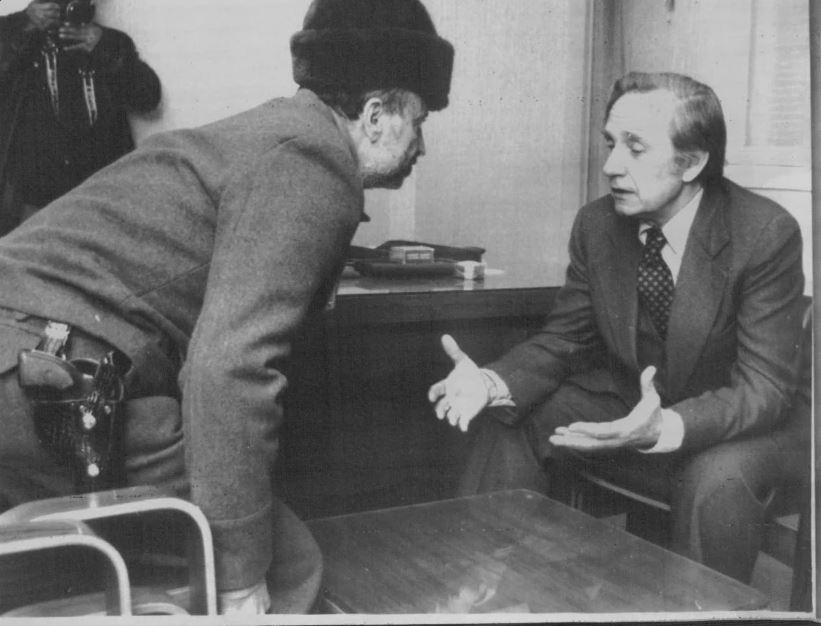Urquhart advocated a view that UN peacemakers should negotiate with any influential parties, no matter how unsavoury. “We don’t have these moralistic hang-ups about whom we can deal with,” Urquhart told the New York Times in 1981 after having negotiated with the Palestine Liberation Organisation to stop firing missiles into Israel from Lebanon.
Urquhart was one of the only UN officials accepted by both Israel and the Palestinians as a mediator. In February 1982, a few months before Israel’s invasion of Lebanon, Urquhart was dispatched to the region on shuttle diplomacy with Prime Minister Menachem Begin — who considered Urquhart a “man of valour” — and PLO leader Yasser Arafat.
While Urquhart worked around the clock to reach an agreement, he secured a temporary truce, but eventually realised negotiations were fruitless. “We delivered the PLO as usual,” he told the New York Times, “but Israel took advantage of the ceasefire to occupy the heights around Beirut.”
As a public face of the UN, Urquhart drew withering criticism at times. He said he grew to expect hostility from conservative ideologues with ramrod support for Israel in Middle East conflicts. “When the United States gets into Middle East bargaining,” Urquhart once wrote, “the price of all the rugs tends to go up, and the prospect of a deal becomes more distant.”
Read the obituary of Briuan Urquhart in the Brisbane Times (from The Washington Post).

